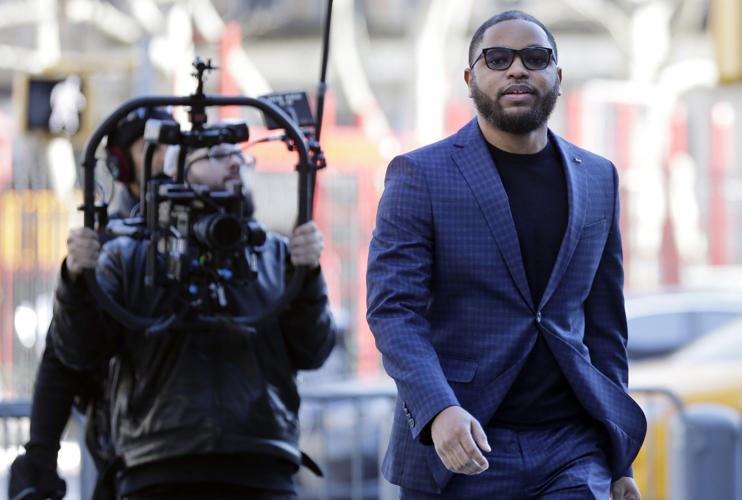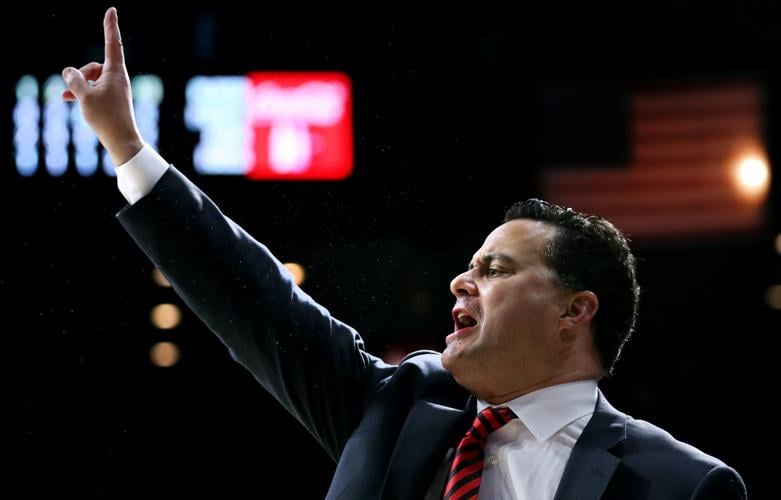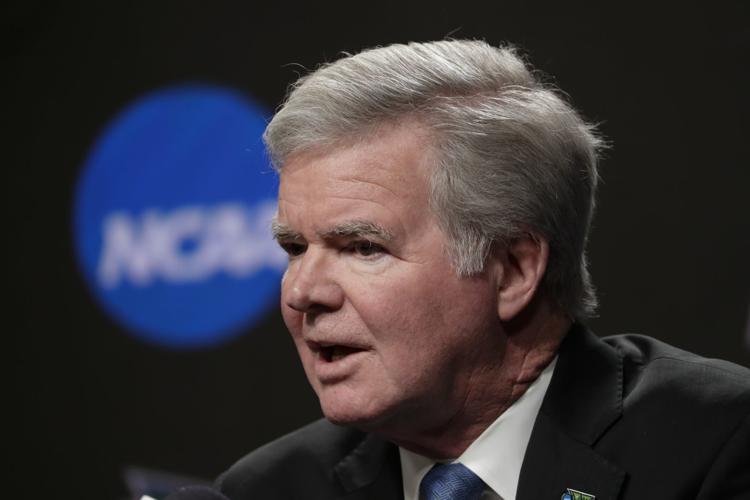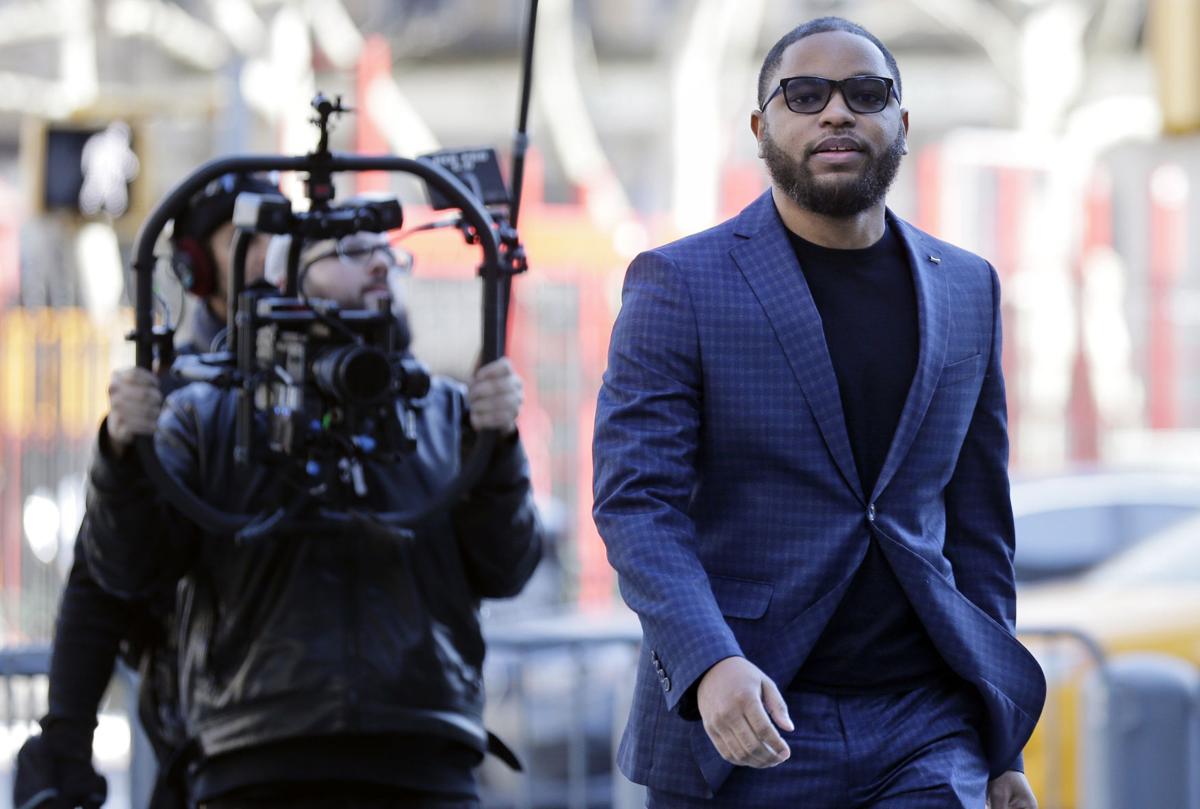When the Arizona Board of Regents exited a closed-door meeting involving “legal advice and discussion about Arizona basketball” on Friday, they kept one eye firmly on a riveting legal Ping-Pong match playing out in New York.
That’s where a final answer to the UA’s off-court basketball saga could ultimately come to fruition.
In the Southern District of New York’s U.S. District Court, defense attorneys in the upcoming federal bribery trial have filed two motions to allow testimony from coaches not charged with crimes, with the prosecution filing twice to disallow it.
Saying it would be inappropriate to do so, prosecutors noted that defense attorneys for aspiring agent Christian Dawkins and former Adidas rep Merl Code intend to elicit testimony from subpoenaed coaches “about their involvement in NCAA rule-breaking by paying student-athletes.”
The defense’s motions have countered that the additional evidence and testimony is necessary to show the “state of mind” Dawkins was operating under when he was accused of bribing assistant coaches in order to get them to steer players to Dawkins’ agency.
While the bribery trial doesn’t start until April 22, a federal judge is expected to rule beforehand on whether such evidence and/or testimony will be allowed, and the scope of it.
Essentially, it’s the trial before the trial.
The judge’s ruling “will have a potentially significant impact upon the outcome of the trial,” said Stu Brown, an Atlanta-based attorney who has represented schools in NCAA compliance issues. “If the potential testimony of other coaches who have been mentioned was not very important or decisive in the outcome of the trial in terms of (affecting) the jury, the two sides would not have to be having this argument.”
UA coach Sean Miller and LSU’s Will Wade have reportedly been subpoenaed for the trial, and UA president Robert Robbins said during regent meetings that he wasn’t sure if Miller would be taking the stand or not.
“We’re waiting to hear about that,” Robbins said. “We know the trial’s going to happen and that’s my update.”
The regents were in the same boat.
“Everybody’s just awaiting further development of the facts,” regent Jay Heiler said.
So while everybody is waiting, maybe it’s time to take a look at how things moved here in the first place.
Since the federal investigation into college basketball became public in September 2017, it has created an unprecedented bi-level view into college basketball recruiting, with one level showing possible federal crimes involved and another level exposing potential NCAA violations.
While attorneys for Dawkins and Code have not responded to messages from the Star, other attorneys offered input in answering some of the most “frequently asked questions” about Arizona’s involvement in the federal proceedings.
News archives from the past 19 months also help answer the FAQ, which include:
Weren’t Dawkins and Code already convicted?
Yes. Dawkins, Code and Adidas executive James Gatto were convicted on fraud charges in October 2018, with a jury agreeing that they essentially defrauded schools by paying the families of recruits to ensure they signed with Adidas-sponsored schools, and later would sign with Adidas and Dawkins’ agency as pros. The case centered around the argument that because the players had accepted money, they arrived at their colleges while technically ineligible, thus defrauding the schools.
However, this month’s trial is based on separate bribery charges, for money Dawkins and Code allegedly gave to assistant basketball coaches that they could use to lure recruits, in exchange for later steering players to them professionally.
Didn’t Book Richardson already settle this?
Yes. The former UA assistant coach was scheduled to be a part of this month’s trial, but he and two other former assistant coaches — Tony Bland of USC and Lamont Evans of Oklahoma State — all accepted plea agreements.
Richardson was initially charged with conspiracy to commit bribery, solicitation of bribes by an agent of a federally funded organization, conspiracy to commit honest services fraud, wire fraud conspiracy and travel act conspiracy. He was immediately suspended by the UA, which then fired him in January 2018.
Accused of taking $20,000 from Dawkins to give to recruits in exchange for steering Arizona players to him for professional representation, Richardson pleaded guilty to one count of federal funds bribery, while the other charges against him were dropped. He is scheduled to be sentenced on May 30, likely to receive six months or more in prison, or possibly just probation.
Richardson’s attorney, Criag Mordock, said he didn’t think the result of the upcoming trial would affect Richardson’s sentencing either way.

Sean Miller calls a play during the second half of the Arizona Wildcats vs. Washington State men’s college basketball game, Feb. 9, 2019, at McKale Center in Tucson.
If Sean Miller was charged, and the feds had anything on him, wouldn’t it have already come out? Why was he subpoenaed?
Miller has not been charged with any federal crimes and, even if he was found in violation of NCAA rules based on the evidence federal investigators found, that isn’t necessarily pertinent to this case. That’s one reason prosecutors are arguing against having uncharged coaches such as Miller be allowed to testify.
However, Dawkins’ attorney reportedly subpoenaed Miller and Wade for the purpose of showing context around Dawkins’ actions. Brown said the fact that prosecutors are trying to block the coaches from testifying indicates they believe the defense does have tapes and/or witnesses that can show NCAA violations.
“The defense has said, ‘There’s a lot of smoke here and we’re going to introduce it to show there’s an underlying fire, and that our defendant did not start the underlying fire,’” Brown said. “If the prosecutors believed there was no fire, then they probably would not be contesting the evidence.”
When news surfaced that Miller would be subpoenaed in February, the coach repeatedly declined to comment.
Will Miller have to take the stand?
Not if federal prosecutors win the pretrial battle that is ongoing. They argue the defense should not be allowed to cite evidence that they did not bribe uncharged coaches (such as Miller), nor be “arguing the merits of the NCAA’s amateurism rules and/or the pervasiveness of rule-breaking in college basketball.”
Prosecutors say doing so is irrelevant to the federal charges and that it could be an attempt to garner sympathy from the jury. They argued that judge Lewis Kaplan correctly precluded similar discussion about NCAA amateurism rules in the October fraud trial.
However, the defense has countered by saying evidence from uncharged coaches is pertinent to showing the “state of mind” Dawkins was operating under and to disallow it would “materially prejudice their due process right to present a complete defense.”
Brown said he believed prosecutors are concerned that the jury would be hearing about greater wrongdoing in college basketball and wondering why the other wrongdoers are also not facing charges.
“On the other hand, the defense attorneys have a legitimate good faith argument about why this other information is important to the defense of their client,” Brown said. “Everybody should want defendants to have a full and fair chance to defend themselves, so that’s the balancing test that the judge will have to make.”
Is there really a wiretap of Miller discussing a pay-for-play scheme?
Citing “sources familiar with the government’s evidence,” ESPN reported in February 2018 that Miller discussed paying former UA star Deandre Ayton $100,000 on a conversation with Dawkins that was captured by FBI wiretap.
The report led to Miller leaving the Wildcats for five days, including a game at Oregon, while UA officials said they asked Miller “direct and pointed questions.”
Upon returning, Miller adamantly denied the report, adding that he was once approached about paying a player and did not agree to it.
“I have never knowingly violated NCAA rules while serving as head coach of this great program,” Miller said as he read a statement on March 1, 2018. “I have never paid a recruit or prospect or their family or representative to come to Arizona. I never have and I never will. I have never arranged or directed payment or any improper benefits to a recruit or prospect or their family or representative and I never will.”
The defense says it is proposing “less than an hour of audio recordings along with a small number of text messages,” but it is not clear what those recordings contain. The defense motion lists 11 statements “offered to disprove the state of mind required for a conviction,” but all of them are redacted and only readable by the judge.

NCAA President Mark Emmert answers questions at a news conference at the men’s basketball Final Four, Thursday, April 4, 2019, in Minneapolis.
What are the NCAA implications so far?
At a minimum, Miller could face penalties under NCAA Bylaw 11.1.1.1, which states head coaches are responsible for the actions of indirect and direct reports unless he or she can rebut the presumption of responsibility.
Richardson admitted to accepting $20,000 in exchange for a promise to steer UA players to Dawkins for professional representation. Prosecutors said Richardson planned to use $15,000 of the money to lure a recruit to the Wildcats.
In addition, during the October fraud trial, the father of five-star prospect Brian Bowen said Dawkins told him that then UA-associate head coach Joe Pasternack offered $50,000 for his son to play for the Wildcats. It is unknown whether NCAA investigators have corroborated that claim.
In a separate issue, UA has twice disciplined assistant coach Mark Phelps for breaking NCAA rules, once in October 2018 and again last February, when it moved to fire him.
UA could be forced to vacate its wins from the 2017-18 season if Ayton is ruled retroactively ineligible because of money he accepted before playing collegiately.
In the October trial, Adidas consultant T.J. Gassnola said he gave a family friend of Ayton’s $15,000 in an effort to steer him toward Adidas-sponsored Kansas. Attorney Michael Avenatti recently released records he says prove that Nike paid Ayton’s mother $10,000 and a handler of Ayton’s $28,000.
NCAA investigators are now allowed to import evidence from the federal investigation, and Brown says it is certain it will investigate UA at some point, but it is unknown where that process stands now.
In February, more than 13 months after the Star filed a public-records request seeking communication between the school and NCAA about the federal complaints and potential NCAA issues from them, UA said it had no records.
Did Phelps’ removal have anything to do with this?
UA says it did not. The school moved to fire Phelps in February for breaking an NCAA rule it said did not involve the federal proceedings, though it is possible that Phelps’ activity was discovered by the law firms UA has hired to review the basketball program in the wake of Richardson’s arrest.
Through Oct. 1, 2017, and Sept. 30, 2018, ABOR paid two law firms more than $1.2 million for work in connection with the federal allegations.
Jackson Lewis, the firm UA hired to handle any NCAA issues that may arise from the federal complaint, billed ABOR $629,092 for work performed between Oct. 1, 2017, and Sept. 30, 2018, according to documents released via a public-records request.
Brown said the fact that Arizona spent so much money, and didn’t take action other than removing an assistant coach, suggested the attorneys’ review probably didn’t find anything more significant with NCAA rules.
“Maybe something will come out,” Brown said. “We don’t know what will come out of this trial so maybe we shouldn’t speculate, but most schools if they found something serious and spent all that money, they would have acted” more dramatically.
Maybe now the federal trial spins off another piece of evidence that the NCAA and UA will have to process. Maybe it doesn’t.
Maybe federal prosecutors succeed in keeping additional coaches off the stand later this month. Maybe they don’t.
It’s been almost 19 months now since the federal investigation into college basketball became public, and questions still remain.
“It’s not fun, necessarily, but interesting,” ABOR chairmain Ron Shoopman said. “How this process plays out is a learning experience for all of us.”







